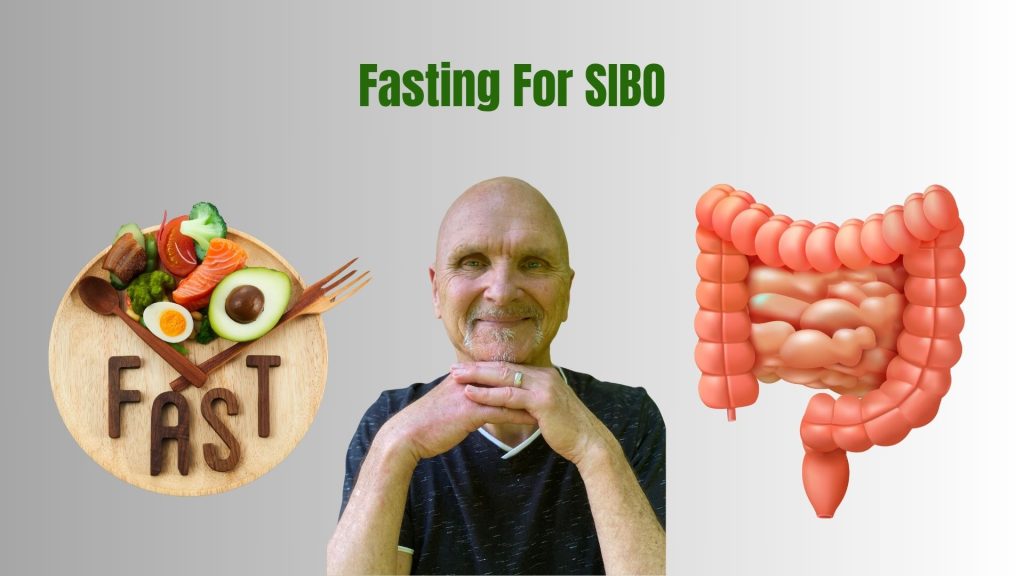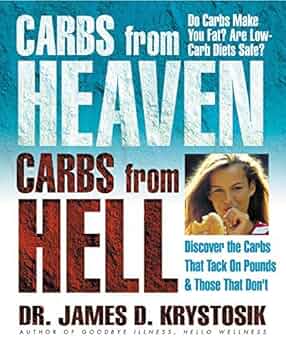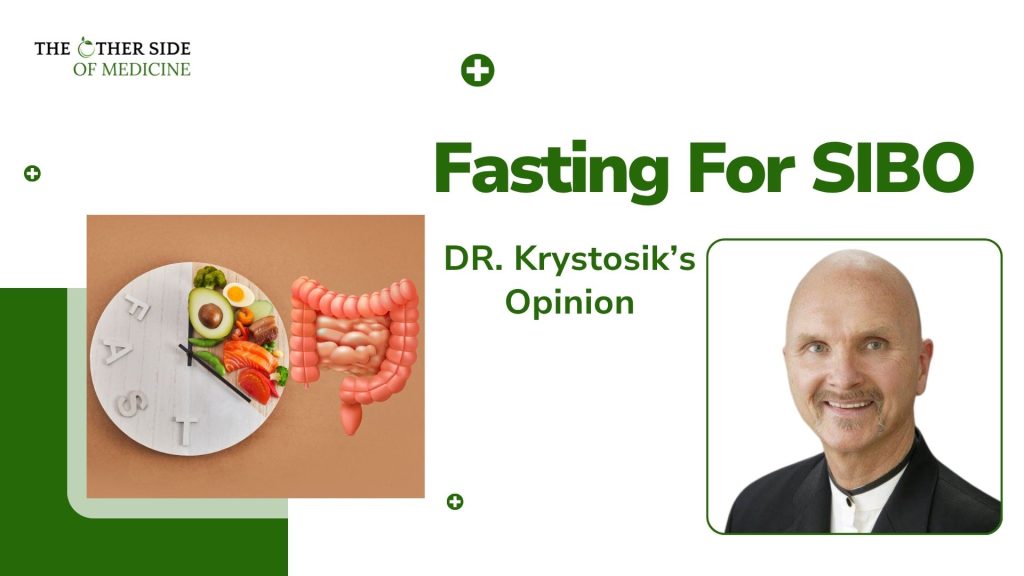Are you struggling with bloating, gas, abdominal discomfort, or irregular bowel movements—and your doctor keeps telling you “everything looks normal”—you may be suffering from SIBO, or Small Intestinal Bacterial Overgrowth.
It’s a condition I’ve seen misdiagnosed or overlooked many times in my 30+ years of clinical practice. But here’s the good news: if the root cause is identified and treated properly, long-lasting healing will occur. And one of the most overlooked and safest tools in this journey? Fasting.
Can Fasting Work for SIBO?

Let’s dive in. Here’s the confusing thing: many healthy foods recommended—like whole grains, fruits, and legumes—can actually worsen symptoms for SIBO sufferers because they’re feeding the wrong bacteria in the small intestine where they don’t belong. That’s why conventional treatments like antibiotics often fail. They might kill off bacteria, but they don’t correct the problem that allowed SIBO to flourish in the first place.
The Functional Medicine Approach: Ask WHY, Not Just WHAT
Conventional medicine is good at identifying the “what” (bloating, IBS, fatigue), but rarely digs deep enough to ask why these symptoms are occurring. In functional medicine, that “why” is the most important factor. SIBO doesn’t appear out of nowhere—it’s the result of several factors.
- Low stomach acid (often from acid blockers or aging)
- Poor gut motility (things just aren’t moving like they should)
- High-refined carb, high-sugar diets (especially “carbs from hell”)
- Chronic stress, which disrupts digestion
- Antibiotic use, which wipes out beneficial bacteria
The key is restoring balance, not with another pill, but with a lifestyle and dietary reset. This is where intermittent fasting comes in as one of nature’s most effective gut repair strategies.
Fasting: Giving the Gut a Much-Needed Rest
Fasting is not starvation. It’s a time to reboot the body. Just like your muscles need rest between workouts, your digestive system needs breaks between meals. But in our culture of grazing, snacking, and late-night eating, the gut rarely gets a moment for R and R.
This constant grazing on food shuts down the migrating motor complex (MMC)—a housekeeping wavelike movement of the gut that sweeps bacteria out of the small intestine between meals. Without enough fasting time, that process never kicks in. That sets up a perfect environment for SIBO.
When we fast—specifically with strategies like the 16/8 method (16 hours of fasting, 8-hour eating window)—we give the MMC time to do its job, naturally flushing out harmful bacteria and preventing them from fermenting the food in the small intestine.
How Fasting Can Reset a Healthy Gut Environment?
Here’s how fasting helps reclaim gut health in SIBO patients:
- Reduces Fermentation: Without food, there can be no fermentation. Fasting deprives the bad bacteria that may be living in your small intestine of any fuel, helping to starve them out.
- Restores MMC Function: Long breaks between meals allow the wavelike motion of the intestines to clear out any unwanted bugs.
- Lowers Inflammation: Fasting reduces inflammatory markers like CRP and IL-6, which enables your body to repair the lining of the gut.
- Promotes Gut Repair: When you’re not digesting food, your body can shift into its repair mode, and repair the walls of the intestines to restore the integrity of the gut.
- Balances Insulin and Blood Sugar: This is important because insulin resistance—often driven by refined carbohydrates—can weaken the function of the digestive tract and feed the harmful bacteria living in the gut.
But Dr. J, Isn’t Fasting Hard?
Not if you do it right.
If the thought of skipping breakfast makes you hungry, consider starting with my modified fast. This involves using my Superfood Power Drink—a blend of nutrient-dense superfoods like spirulina, chlorella, and other plant-based antioxidants—in place of breakfast. It nourishes the body while still allowing gut rest. This liquid form digests quickly, offering many of the benefits of a true fast while keeping you energized.
Many of my patients with SIBO report feeling less bloated, more mentally alert, and more energized within the first week of incorporating intermittent fasting into their daily routine.
A Word About “Carbs from Heaven” and “Carbs from Hell”
If you’re dealing with SIBO, the type of carbs you consume matters. A lot.
Carbs from Hell—refined sugars, white flour, sugary cereals, sodas—are like throwing gasoline on the SIBO fire. These junk carbs ferment rapidly in the small intestine and feed the harmful bacteria and fostering an overgrowth of harmful bacteria.

Carbs from Heaven—low-glycemic fruits (like berries), cooked vegetables, and sprouted legumes—introduced slowly can be restorative.
During the initial SIBO recovery phase, I recommend introducing “Carbs from Heaven”, including fermented food, into the diet slowly. Add small amounts of cooked grains or fermented foods into each meal.
Increase the quantity gradually as long as no bloating or gas. Once symptoms calm down and fasting has restored rhythm to the digestive system, gradually and slowly increase the quantity of these nutrient-rich plant foods.

Dr. J’s Gut-Reset Fasting Plan for SIBO
Here’s a simple protocol I’ve used with thousands of patients:
Phase 1 (Week 1): Gut Rest
Practice 16/8 fasting 5–6 days per week.
Use my Superfood Power Drink as a meal replacement first thing in the morning.
Avoid all “Carbs from Hell” (refined carbs) and introduce “Carbs from Heaven” (whole food carbs) slowly into the diet.
Eat nutrient-dense, anti-inflammatory meals during your eating window (no processed foods).
Phase 2 (Weeks 2–4): Gut Repair
Continue intermittent fasting, increasing to 6–7 days per week.
Introduce gut-healing nutrients: Aloe vera gel, zinc carnosine, and digestive enzymes.
Consider a targeted antimicrobial protocol (herbal, not pharmaceutical), supervised by a qualified practitioner.
Phase 3 (Weeks 4+): Gut Resilience
Increase the quantity of “Carbs from Heaven” like berries, quinoa, and soaked legumes.
Support motility with gentle exercise and stress-reducing practices (like deep breathing and prayer—yes, your gut listens when your spirit is calm).
Final Thoughts: The Natural Way Is the Sustainable Way
Too many people are being told they need long-term antibiotics, restrictive diets, or even surgery for a condition that is best treated by restoring the body’s innate capacity to heal itself. Fasting is not a fad—it’s a biological rhythm built into our DNA. It’s one of the oldest healing practices known to man and continues to be one of the most effective.
If you’re tired of being tired, bloated, and confused, remember this: You were created to be well. Your body is not broken—it’s just out of balance. With the right tools—like fasting, proper nutrition, and support—you can say goodbye to illness and hello to wellness.
Stay encouraged, stay informed, and take charge of your health—naturally.
Stick with us to heal your gut and fuel your health.

